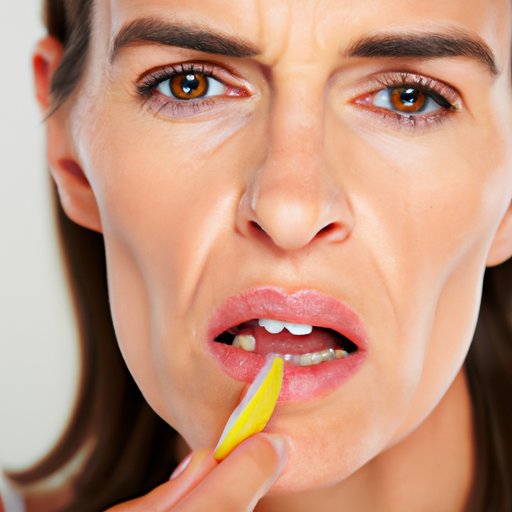
How to Heal Mouth Ulcers: A Comprehensive Guide
Mouth ulcers, also known as canker sores, are small, painful lesions that appear on the inner lining of the mouth, lips, or tongue. Although they are a common condition and usually not serious, they can cause discomfort and interfere with eating and speaking. Fortunately, there are various ways to heal mouth ulcers and alleviate their symptoms. This article provides a comprehensive guide to understanding the causes, prevention, treatment options, natural remedies, managing pain and discomfort, preventing reoccurrence, and importance of seeking medical attention for mouth ulcers.
Causes and Prevention
There are several causes of mouth ulcers, including:
- Minor injuries to the mouth, such as accidentally biting the tongue or cheek
- Stress or emotional anxiety
- Hereditary factors
- Viral infections
- Mouth trauma due to poor-fitting dentures or braces
- Hormonal changes during menstruation
While there is no guaranteed way to prevent all cases of mouth ulcers, there are tips for maintaining good oral hygiene, avoiding certain foods and drinks, and managing stress:
- Brush and floss regularly to prevent bacteria buildup
- Replace your toothbrush every three to four months
- Stay hydrated by drinking plenty of water
- Avoid acidic, spicy, or salty foods that can irritate the mouth
- Avoid smoking or using tobacco products
- Try stress management techniques, such as deep breathing or yoga
Treatment Options
When it comes to treating mouth ulcers, there are various over-the-counter remedies and prescription medications that can be effective:
- Antimicrobial mouthwashes or rinses, such as chlorhexidine
- Pain relievers, such as acetaminophen or ibuprofen
- Corticosteroid creams or gels applied directly to the ulcer
- Prescription-strength mouthwash or gel
If your mouth ulcers are severe or long-lasting, it is important to seek medical attention from your dentist or doctor.
Natural Remedies
There are also several natural remedies that may help heal mouth ulcers:
- Applying aloe vera gel or honey to the ulcer
- Rinsing your mouth with salt water
- Drinking chamomile or licorice tea
- Consuming more vitamins and minerals, such as vitamin B12, folic acid, and iron
- Eating more fruits and vegetables
However, it is important to consult with your doctor before trying any new natural remedies or supplements to ensure they will not interact with any medications you are taking.
Managing Pain and Discomfort
To manage the pain and discomfort of mouth ulcers, there are various options:
- Using over-the-counter pain relievers, such as acetaminophen or ibuprofen
- Applying numbing agents, such as benzocaine or lidocaine, to the ulcer
- Using topical treatments, such as milk of magnesia or baking soda paste, to soothe the ulcer
Preventing Reoccurrence
To prevent reoccurrence of mouth ulcers, there are several steps you can take:
- Avoiding known triggers, such as certain foods or emotional stress
- Using preventive medications, such as antimicrobial mouthwashes or corticosteroid gels
- Maintaining good oral hygiene practices
- Drinking plenty of water
Importance of Seeking Medical Attention
If you have mouth ulcers that are severe, persistent, or painful, it is important to seek medical attention from your dentist or doctor. In some cases, mouth ulcers can indicate an underlying health condition, such as:
- Celiac disease
- Crohn’s disease
- Lupus
- Behcet’s disease
Therefore, it is crucial to have a proper diagnosis and treatment plan set in place.
Conclusion
Mouth ulcers can be a nuisance, but they do not have to be a chronic problem. With a combination of preventive measures, treatments, and natural remedies, you can manage and heal your mouth ulcers effectively. If your symptoms persist or worsen, it is important to seek medical attention to get the proper care you need.





